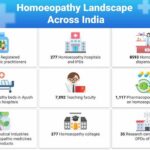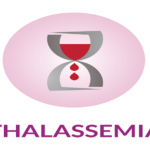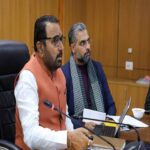New Delhi, April 8, 2017: According to National Family Health Survey 3 (NFHS -3) (2005-06), the primary source of health care for 69.5 percent households in urban areas and 62.5 percent households in rural areas was private healthcare sector. However, recently completed NFHS-4 (2015-16) reveals that for around 52 percent households in urban areas and around 44 percent households in rural areas private sector is the main source of health care when they are sick. In case of Rajasthan, NFHS-4 data indicate that around 36 percent households in urban areas and around 33 percent households in rural areas generally seek healthcare from private sector when household members get sick. Public health being a State subject, the primary responsibility to improve the quality of healthcare services in public health facilities, lies with the State Governments. However, under National Health Mission (NHM), financial and technical assistance is provided to the States/UTs to strengthen the health services.
Several steps taken by the Government to further improve healthcare facilities in the public sector include the following:
- National Quality Assurance Programme has been rolled out to improve quality of care in government health facilities.
- ‘Kayakalp’ award scheme for transforming public hospital by improving Sanitation, Hygiene, Upkeep, Infection Control Practices and waste management practices has been implemented. All facilities from Primary Health Centres (PHCs), Community Health Centres (CHCs), District Hospitals to central government hospitals are given annual award after assessment on defined criteria.
- NHM Free Drugs and Diagnosis Initiatives to reduce cost of care and improve quality in public facilities.
- Setting up of New AIIMS Institutions.
- Upgradation of district hospitals to medical college hospitals in districts without any medical colleges to improve access to tertiary care within districts.
- Pradhan Mantri National Dialysis Services Programme to provide free dialysis services to poor in district hospitals.
- The Pradhan Mantri Surakshit Matritva Abhiyan (PMSMA) to provide quality antenatal care on 9th of every month in government hospitals, with voluntary private sector participation.
- Biomedical Equipment Management & Maintenance Program (BMMP) to ensure uptime of bio-medical equipment in public health facilities.
- Health and wellness centres to provide comprehensive primary healthcare at Sub-Centre/PHC level.
- Cartridge Based Nucleic Acid Amplification Test (CBNAAT) Specialized machines which enable accurate diagnosis of drug resistant TB within a few hours facilitating diagnosis and treatment of Drug Resistant TB have been set up in 628 districts.
- Strengthening the healthcare facilities to Indian Public Health Standards norms with funding under NHM.
- Establishing public health facilities in underserved areas.
The Minister of State (Health and Family Welfare), Sh Faggan Singh Kulaste stated this in a written reply in the Lok Sabha.








I went over this internet site and I believe you have a lot of fantastic information, saved to favorites (:.
http://www.corburterilio.com/
Thank you for the auspicious writeup. It in fact was a amusement account it. Look advanced to far added agreeable from you! By the way, how can we communicate?
http://www.borvestinkral.com/
I have read several just right stuff here. Certainly worth bookmarking for revisiting. I wonder how a lot attempt you place to create such a great informative site.
http://www.borvestinkral.com/